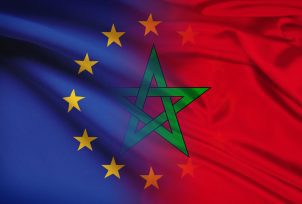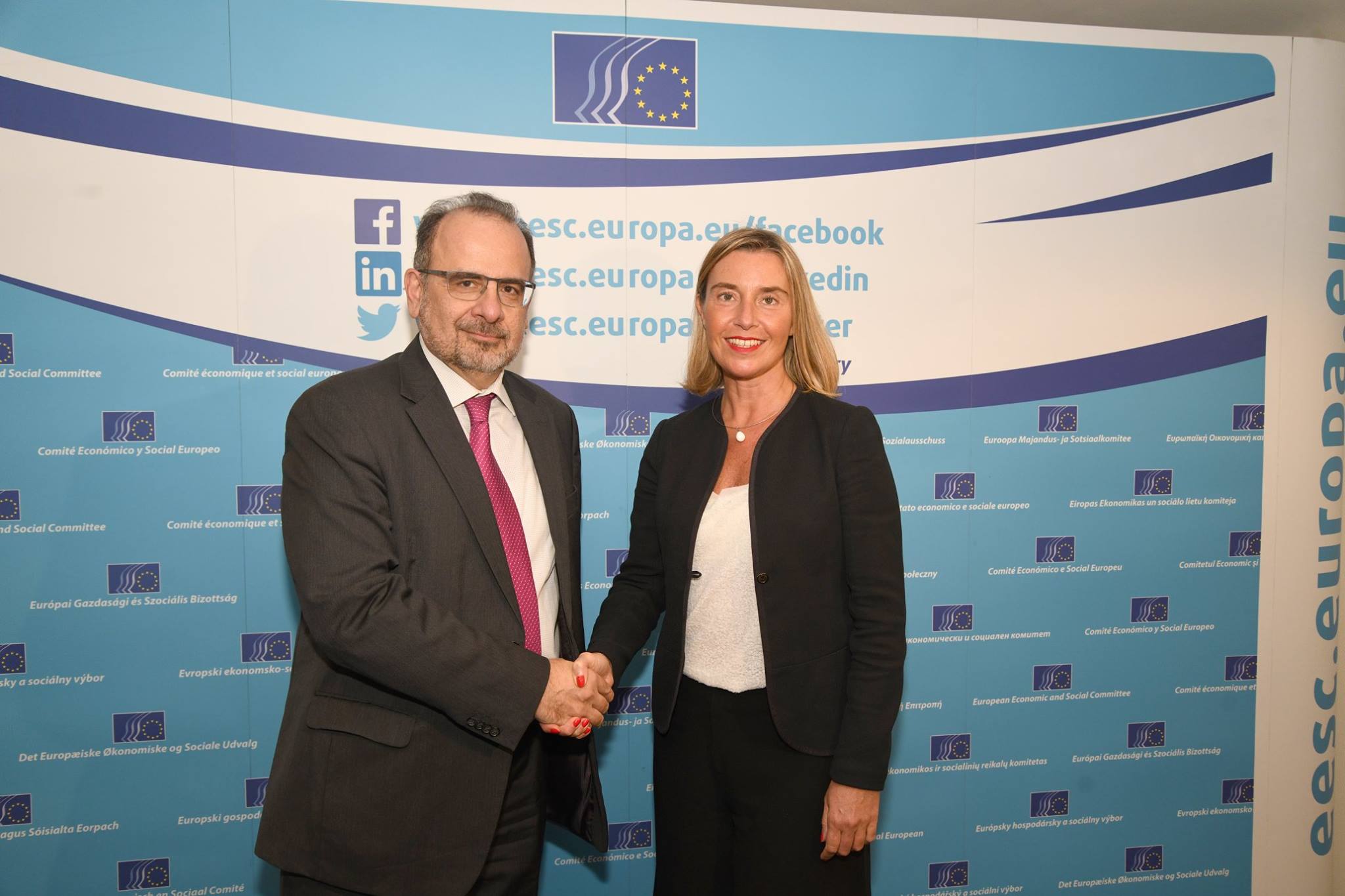EU JEEL CONNECT: A convivial first meeting between the European Union Ambassador to Morocco and young Moroccans
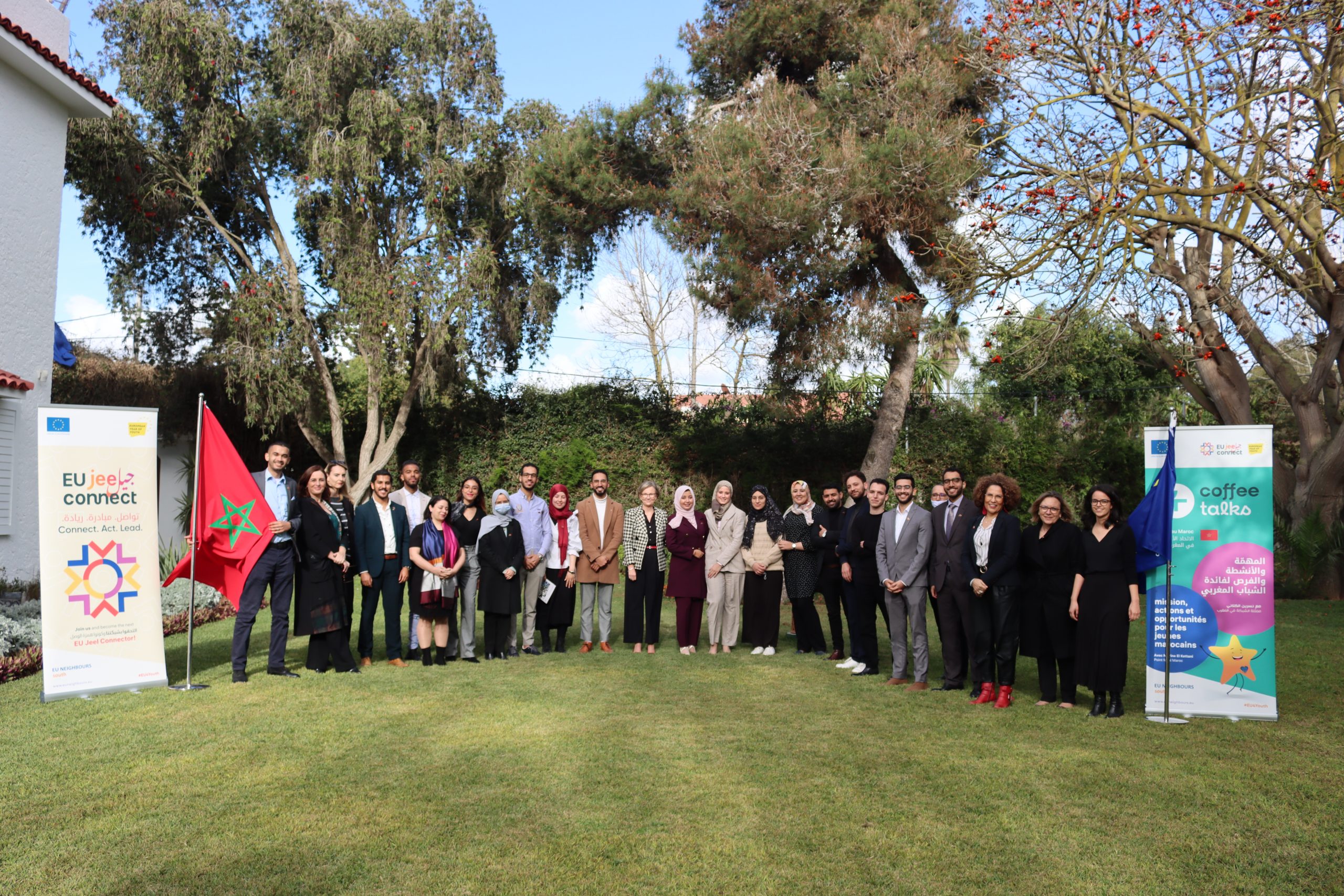
On Friday 4 March, twenty or so young Moroccans between 18 and 30 from different educational backgrounds and universities were invited to a meeting in Rabat with the European Union Ambassador to Morocco, Patricia Llombart Cussac. This is the first in a series of “Coffee Talks”, organised in collaboration with the European Union’s Communication programme EU Neighbours South.
With a special focus on conviviality, this Coffee Talk was an opportunity for open discussions on the European Union-Morocco partnership and the joint initiatives on education, training, capacity building, mobility, social inclusion and entrepreneurship support. The participants also found out about the EU-Morocco partnership initiatives in various different areas, especially mobility, which are specifically aimed at them. The guests, mainly students, community stakeholders and young project leaders, had lengthy discussions, which were enriched with ideas and proposals arising from their own thoughts and reflections as crucial active members of Moroccan society.
In her welcome speech, Her Excellency Mrs Patricia Llombart Cussac emphasised the focus on youth in the European Union-Morocco partnership. She said that “meeting young Moroccans was an ideal opportunity to talk with them about their aspirations and the challenges they face. It was also a chance to reiterate that the European Union and Morocco are committed to working together on a number of large-scale endeavours including world peace, social inclusion, economic recovery, the green and digital transition, and gender equality, to ensure that nobody is left behind. We often say that young people are the future, but that is particularly true today. They are an asset and a driving force for our societies and we must do our utmost to support them.”
The European Year of Youth 2022
The European Union declared 2022 “The Year of Youth”, calling upon young people in Europe and around the world to contribute to joint efforts to build a better future, which is stable, green, inclusive and digital. The EU youth strategy forms the framework of European cooperation in youth policy. It supports youth involvement in democratic life and aims to help all young people take part in society. In support of the European Year of Youth, the EU Neighbours South programme launched the EU JEEL CONNECT network covering the countries and territories in the Southern Neighbourhood region, namely Algeria, Egypt, Jordan, Lebanon, Libya, Morocco, Palestine and Tunisia. EU JEEL CONNECT is an initiative that aims to promote the opportunities offered by the EU to young people, implemented in partnership with eight focal points in eight countries. Each focal point has extensive experience in collaborating with and bringing together young people in each country in order to give them a voice and defend the causes which the EU and young people hold dear. Throughout the year, the focal points will organise events and activities in their respective countries and will invite young people from different regions and backgrounds to provide information and host discussions.
Coffee Talk in Rabat: an initial meeting with young Moroccans
In her welcome speech for the Coffee Talk guests, the EU JEEL CONNECT focal point in Morocco, Ms Nisrine El Kettani, encouraged the attendees to join the network and become “EU JEEL connectors” themselves. She pointed how that by participating in these collective initiatives, young people can become a driving force for change. She told those gathered that “the future belongs to the young. The future needs to be built by them and for them. Without the involvement of young Moroccans of all backgrounds and from all regions, we cannot ensure a prosperous future and sustainable development. Through EU JEEL CONNECT, we strive to provide information to students, jobseekers and those developing projects and initiatives funded by the European Union, and we are committed to showing them all the opportunities open to them”. This Coffee Talk in Rabat was the first in a series of events which will be organised in other cities, involving young Moroccans and representatives of the European Union in Morocco.
For more information
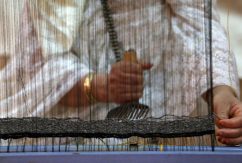
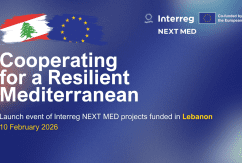
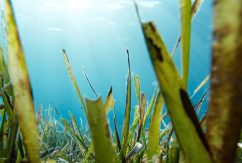
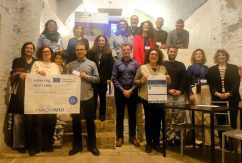

























 Syria
Syria 
